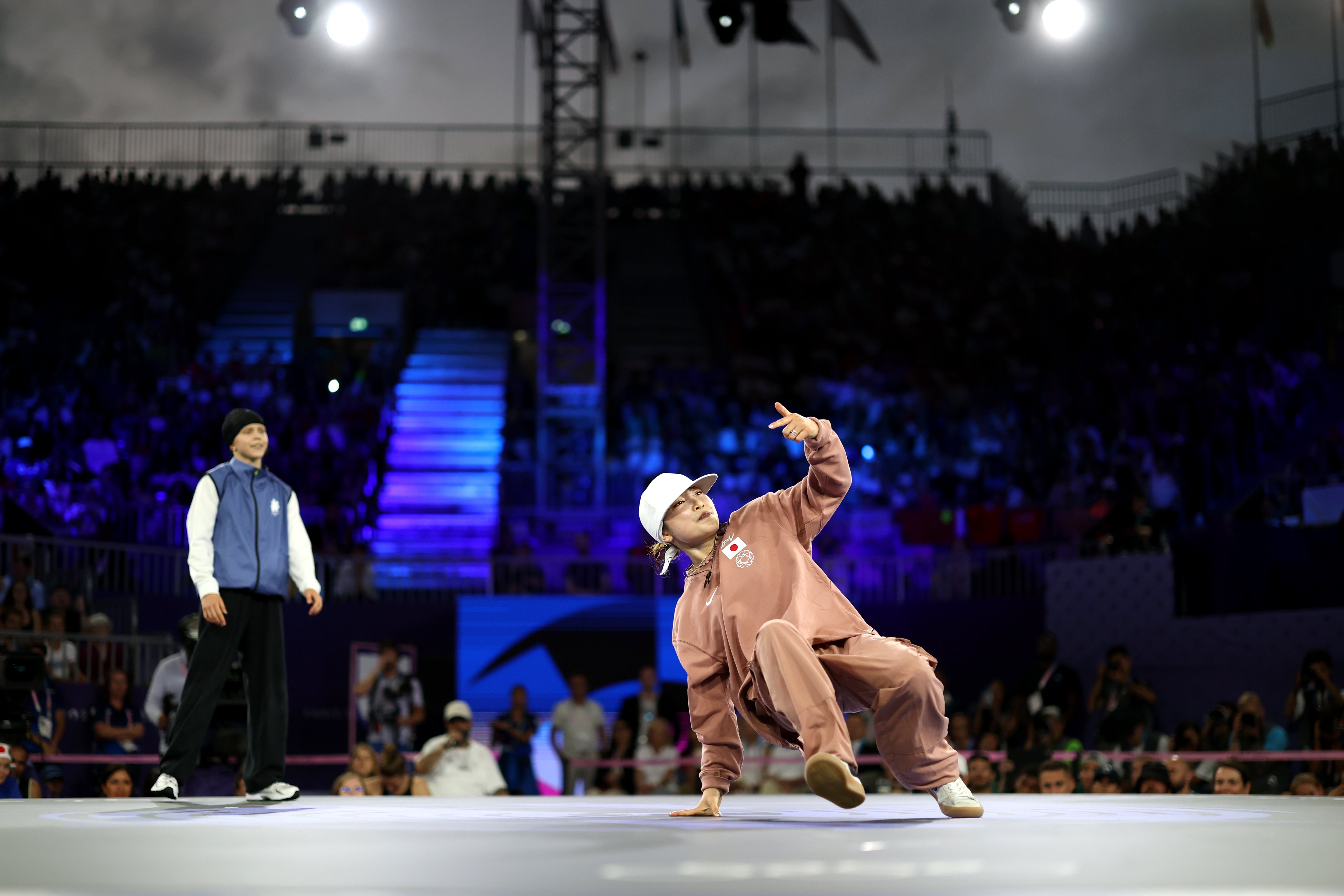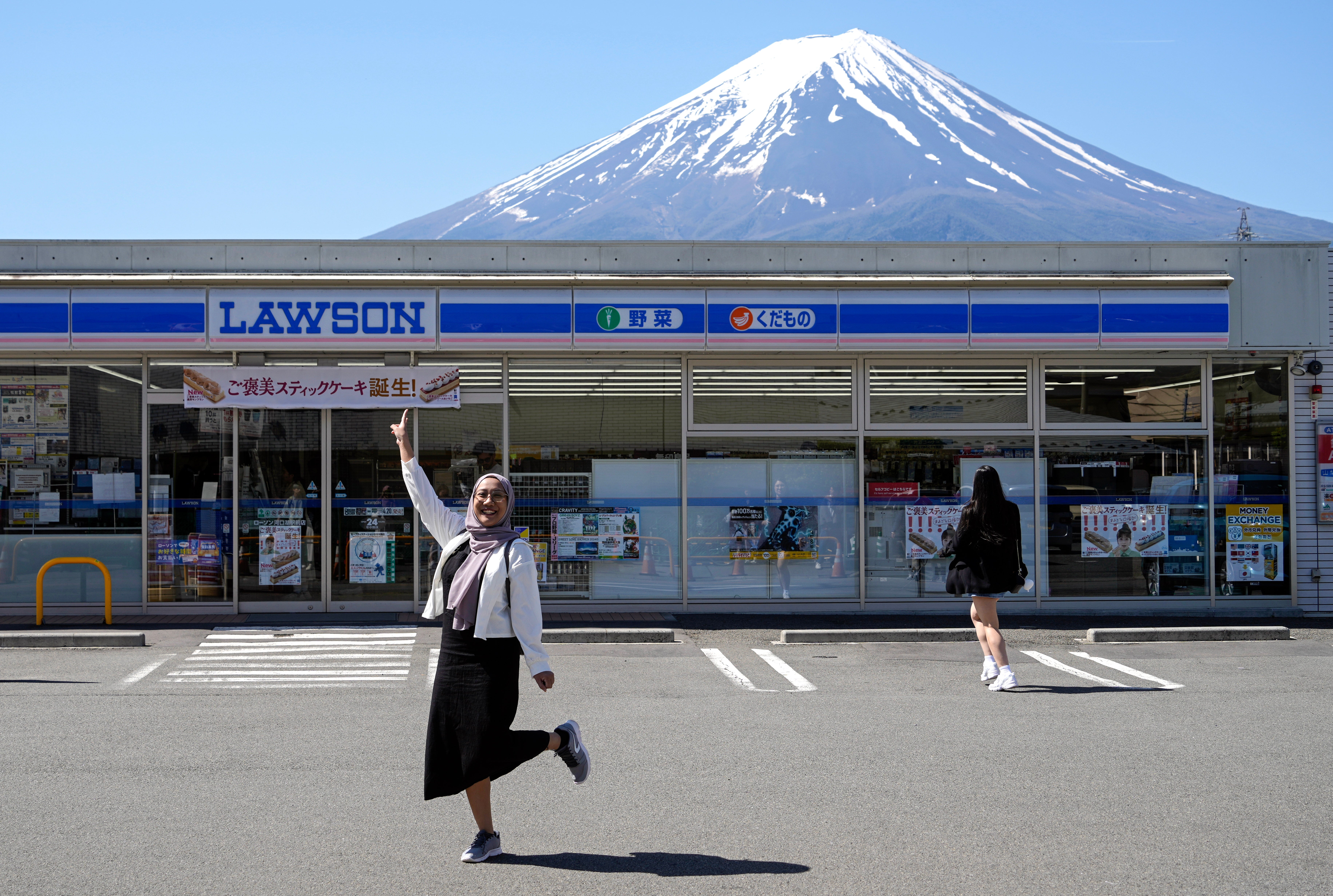Nominations for Japan’s buzzword of the year were released on Tuesday, revealing the trends and conversations that dominated the country in 2024.
The buzzword for 2024, along with the words that made it to the top 10, will be chosen from among 30 nominated words and will be revealed on 2 December at the U-Can Shingo Ryukogo Taisho competition organised by the publishing house Jiyukokuminsha, The Japan Times reported.
The 2024 Paris Olympics appears to have been a big draw as several top words centre around the event. “Bureikin” or “breaking” refers to breakdancing, which was included in the Olympics for the first time this year. Japan’s Ami Yuasa became the first woman to bring home an Olympic gold for breaking.
The competition also saw controversy after Australian breaker Rachael ‘Raygun’ Gunn’s performance led to viewers questioning her moves and her costume, followed by vicious bullying on social media.

Javelin thrower Haruka Kitaguchi’s frustrated statement, “Meigen ga nokosenakatta” or “I could’ve said something more quotable” after she won a gold at the Olympics too made it to the list, as did wheelchair tennis player Tokito Oda’s “Yabai, kakkoyosugiru, ore” or “Whoa, I have too much rizz” after he won a Paralympic gold in men’s wheelchair tennis.
Japan’s equestrian team, who brought back the country’s first medal in the sport since 1932, called themselves “Shoro Japan” or “past middle-aged Japan” because of the team’s average age of 41.5.
Japanese baseball pitcher Shohei Ohtani’s historic achievement of becoming the first player ever to hit 50 home runs and steal 50 bases in a single season led to the inclusion of “50:50” in the list.
Political events dominated the national conversation.
After the revelation that the ruling Liberal Democratic Party’s campaign funds had been siphoned off into a secret slush fund led to the resignation of its leader Fumio Kishida, “uragane mondai” or “slush fund scandal” saw consistent use, especially as Japan went to polls later in the year.

“Kasuhara” or “customer harassment” too was a top mention after the Tokyo metropolitan assembly passed an ordinance to protect service workers.
“Shin shihei” or “new banknotes” — Japan introduced new banknotes on 3 July – and “Shin NISA”, an abbreviation of the Nippon Individual Savings Account, a tax-exempt investment programme launched on 1 January 2024 to encourage people to shift from savings towards investment, were also in the list.
Words that became popular on social media also made it to the list, like “Neko Meme” or “cat meme”, “BeReal”; a French social networking app that asks users to post unfiltered photos of themselves; and “Kaiwai” or “neighbourhood”, which refers to groups with a common interest.
“Konbini Fujisan” or “Mount Fuji convenience store” too was a heavily mentioned phrase, after frustrated locals in Fujikawaguchiko bemoaned the hordes of badly behaved tourists that flocked to the popular Instagram photo spot in front of a Lawson’s convenience store.

Food-related words were also nominated, such as “Asai Bouru” after açaí bowls saw a comeback in Japan as well as “Inbaundon”, a portmanteau of the words inbaundo or inbound and don or rice bowl, which is a fine-dining version of the popular Japanese recipe with expensive seafood.
“Reiwa no kome sōdō” or the “rice riots in the Reiwa Era” don’t refer to actual riots, but the shortage of rice in supermarkets the country saw this summer.
Other phrases like “Tokuryū” or “quasi gangsters” for makeshift groups set up to commit crimes and “Howaito Anken” or “white job,” a euphemism for illegal part-time jobs were also on the list, according to Tokyo Weekender.
Also featured were “Hidankyo” after the “Nihon Hidankyo”, a group representing survivors of the Hiroshima-Nagasaki atomic bombings who won the Nobel Peace Prize for 2024, as well as “Nankai Torafu Jishin Rinji Joho” after the Japan Meteorological Agency’s first ever megaquake alert following a 7.1 magnitude earthquake off the coast of Miyazaki Prefecture in August.







